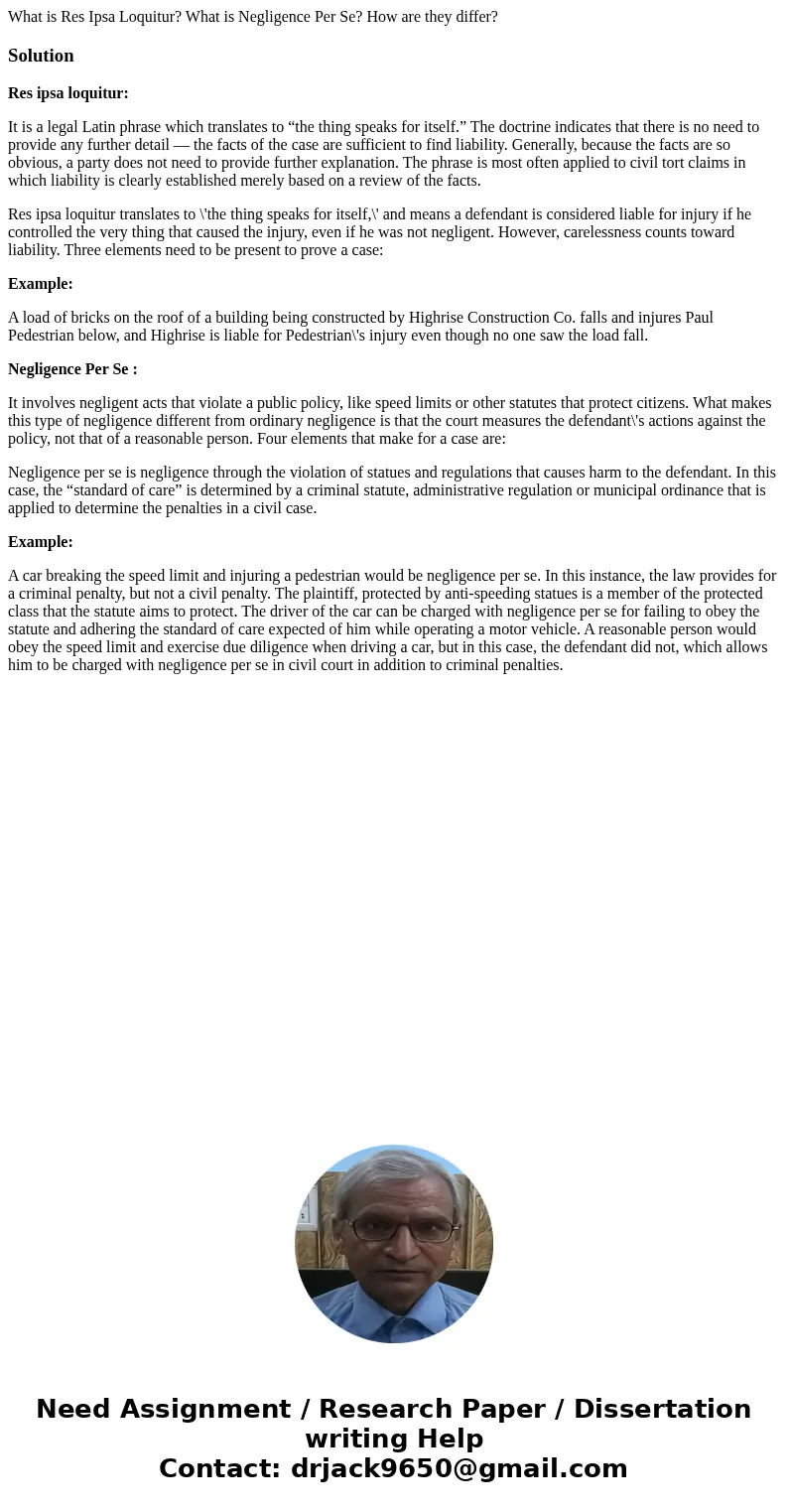What is Res Ipsa Loquitur What is Negligence Per Se How are
What is Res Ipsa Loquitur? What is Negligence Per Se? How are they differ?
Solution
Res ipsa loquitur:
It is a legal Latin phrase which translates to “the thing speaks for itself.” The doctrine indicates that there is no need to provide any further detail — the facts of the case are sufficient to find liability. Generally, because the facts are so obvious, a party does not need to provide further explanation. The phrase is most often applied to civil tort claims in which liability is clearly established merely based on a review of the facts.
Res ipsa loquitur translates to \'the thing speaks for itself,\' and means a defendant is considered liable for injury if he controlled the very thing that caused the injury, even if he was not negligent. However, carelessness counts toward liability. Three elements need to be present to prove a case:
Example:
A load of bricks on the roof of a building being constructed by Highrise Construction Co. falls and injures Paul Pedestrian below, and Highrise is liable for Pedestrian\'s injury even though no one saw the load fall.
Negligence Per Se :
It involves negligent acts that violate a public policy, like speed limits or other statutes that protect citizens. What makes this type of negligence different from ordinary negligence is that the court measures the defendant\'s actions against the policy, not that of a reasonable person. Four elements that make for a case are:
Negligence per se is negligence through the violation of statues and regulations that causes harm to the defendant. In this case, the “standard of care” is determined by a criminal statute, administrative regulation or municipal ordinance that is applied to determine the penalties in a civil case.
Example:
A car breaking the speed limit and injuring a pedestrian would be negligence per se. In this instance, the law provides for a criminal penalty, but not a civil penalty. The plaintiff, protected by anti-speeding statues is a member of the protected class that the statute aims to protect. The driver of the car can be charged with negligence per se for failing to obey the statute and adhering the standard of care expected of him while operating a motor vehicle. A reasonable person would obey the speed limit and exercise due diligence when driving a car, but in this case, the defendant did not, which allows him to be charged with negligence per se in civil court in addition to criminal penalties.

 Homework Sourse
Homework Sourse